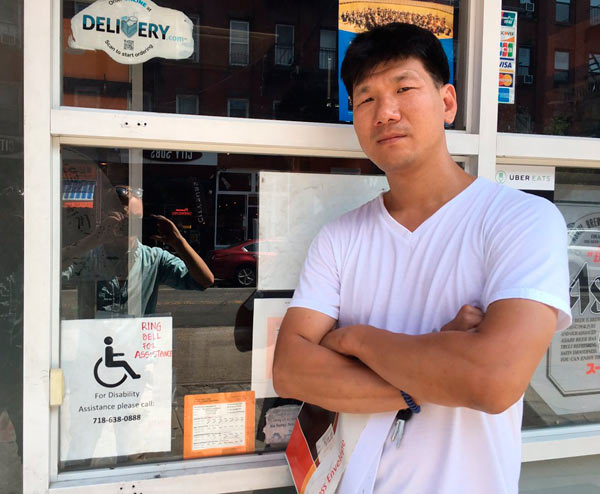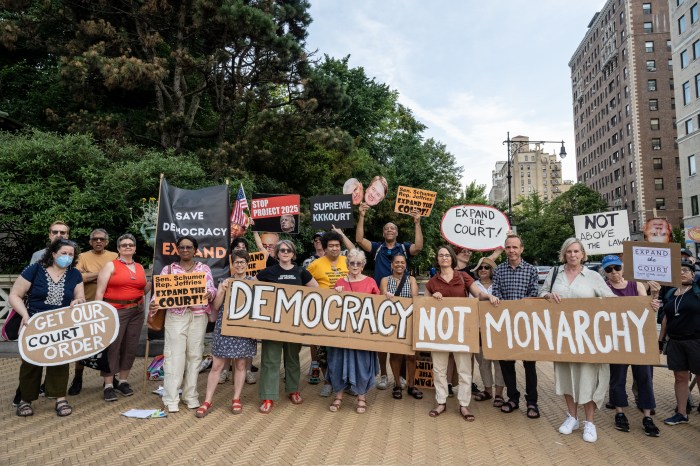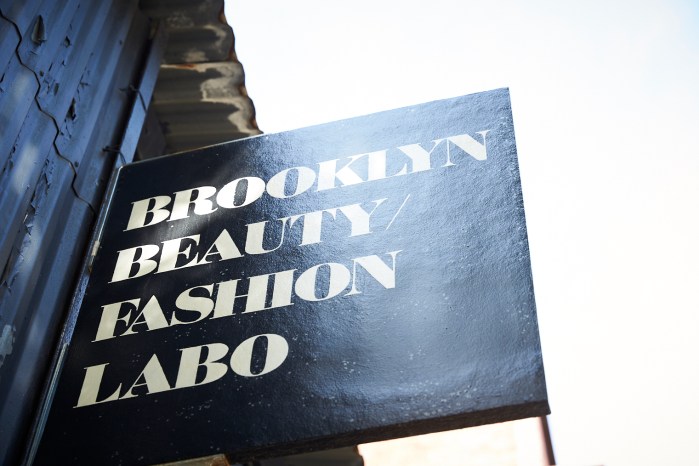Call it a legal assault on the little guy.
Disabled residents protected under a federal law are serially suing mom and pop shops in Park Slope and Prospect Heights, forcing the small businesses’ owners to pay thousands of dollars in settlements or risk potentially ruinous legal battles, according to a local business leader.
“They’re going to go for a business that’s small, that’s not going to be able to fight back, that’s going to want to settle,” said Mark Caserta, head of the Fifth Avenue Business Improvement District.
Litigants have brought suit against at least 14 Fifth Avenue businesses, including the recently shuttered Dizzy’s diner, SkyIce, Cultured Yogurt, Lotus Vietnamese Sandwiches, Burger Bistro, Calexico, Luke’s Lobster, Hiroto Japanese Restaurant, Nahm Thai Kitchen, Russo’s Mozzarella and Pasta, Pick Quick Foods, Le Pain Quotidien, Pizza Town, and Uncle Barry’s. The lawsuits are being filed under the Americans with Disabilities Act, a 1990 law that grants federal protection to physically and mentally disabled people and requires companies to comply with specific accessibility standards.
Any business without some form of wheelchair access is liable under the legislation, but various infractions concerning signage, door width, sink height, and other less-obvious violations also can result in prosecution.
“We didn’t have a mirror at the right height in our bathroom,” said the owner of a Prospect Heights restaurant that was sued twice, who agreed to speak anonymously for fear of future litigation.
Disabled plaintiffs are required to attempt accessing a business before filing suit. But they do not have to inform its owner or any employees of their complaints before heading to court and, for many embattled proprietors, first news of their grievances appears in the form of a lawsuit.
“If it was me, and I generally wanted to patronize the business … I would bring it to the owner’s attention,” said SkyIce owner Jonathan Bayer, whose ice cream parlor was among the first Fifth Avenue shops to be sued. “That never happened.”
Among the litigants is wheelchair-bound Queens resident Pedro Fontanes, who has sued 55 businesses throughout the city since filing his first complaint last August, court records show. His lawsuits, which target at least 11 businesses on Fifth Avenue, were prosecuted by Manhattan attorney Ismail Sekendiz, who did not return messages seeking comment.
Individuals are not entitled to money under the legislation, but the same can’t be said for their lawyers, who can reap handsome fees through settlement deals.
In Park Slope, business owners who agree to settle can fork over between $5,000 and $6,500 in legal and other fees — which, while cheaper than financing a protracted legal battle, is still enough to severely affect a mom-and-pop operation’s bottom line, Caserta said.
“That’s a lot of money for a small business,” he said. “It’s crippling.”
But some advocacy groups, such as Brooklyn Center for Independence of the Disabled, offer a less aggressive approach to helping the community’s disabled by sending experts to check shops for compliance issues, according to a volunteer.
“This program is very positive, because we reach out to the site and tell them things they should make better,” said Yesenia Torres, who has been wheelchair-bound for 23-years because of a car accident.
She has never filed suit under the law, and said she would always attempt to work with a business owner before taking him or her to court.
“I would go the nicer way and speak to the person,” she said.
But Torres understands how the frustrations of living with a disability would lead a fellow differently abled person like Fontanes to seek legal recourse, she said.
“I think he has a mission,” she said. “A personal mission.”
The wheelchair-user is currently suing Fifth Avenue eatery Hiroto Japanese Restaurant, claiming he tried and failed to access it due to lack of handicapped facilities, according to court documents.
The eatery’s owner is not sure whether he’ll fight it out in court or settle to the tune of $6,000 — an amount that would devastate his business, he said.
“That’s a lot of trouble for us,” said Bryan Kheng. “We’ve got a lot to worry about.”























